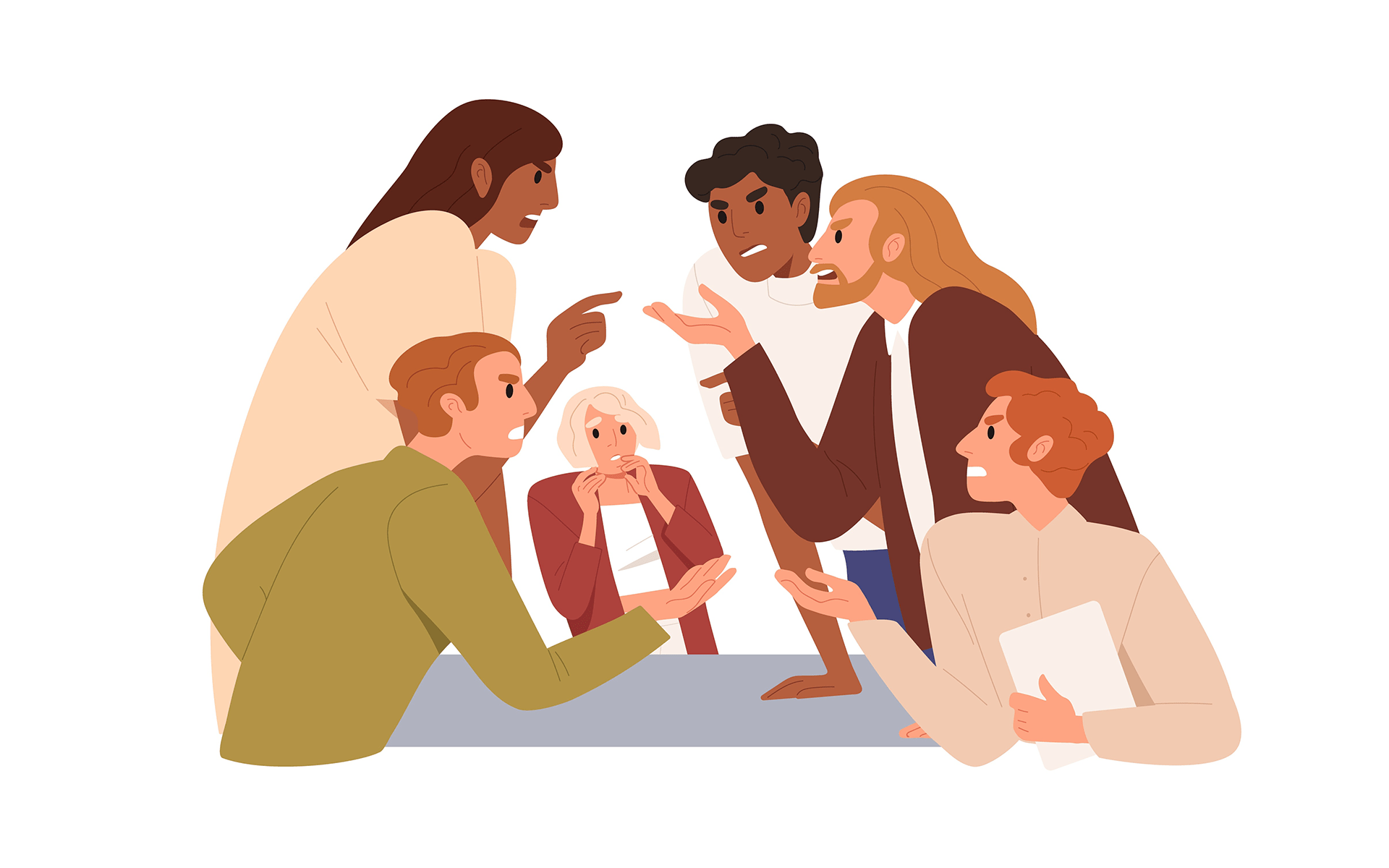Gender identity. The environment. Politics, guns, and gluten. These breezy topics are great for family dinners, watercooler chit-chat, and neighborly how-dee-doos. Yes, they’re perfect conversation starters if you want to discover how differently other people see the world. And not just those other guys down the road there, but also your near and dear ones. You know people you love, cherish, admire—the ones you thought for sure were seeing things your way.
For instance, few things have brought us into greater unexpected conflict with those we love than the question of vaccination status. We live in a time that privileges individual freedom of thought, action, and choice. Great! Until Aunt Jiji and Uncle JoJo tell you, just as you are biting down on a buttery piece of bbq they’ve handed you, that they’ve made different choices than you have about being vaccinated. At that moment, as many thoughts and feelings arise, what are you to do?
How Are You Seeing the World?
Each of us believes the way we see the world is the way the Big Bopper intended. When we uncover someone’s belief that we should all wear clown costumes to work or only eat zucchini muffins we may wonder, what’s going on? When someone operates differently than we think they should, we may feel alienated. If it is someone close to us, who we were sure we knew, it may feel like an Invasion of the Body Snatchers moment. When we pause, we can be reminded of the reality that we all have our own views and opinions on how to best live our lives, and how other people should live theirs—and we can find space to see that we have a choice about how to navigate inevitable conflicts of view, so that we might still all find a way to respect even what we cannot abide.
The Art of War suggests that if you are really interested in working with conflict, you have to allow yourself
to tolerate a range of unfamiliar or uncomfortable sensations, from music you don’t like, at a volume that’s lower or higher than you think it should be, to opinions you think are dead wrong.
When to Agree to Disagree
Allowing for unfamiliar feelings doesn’t mean caving into another’s view. It means noticing that your back has gone up, and still deciding to stick around a while and see what’s what.
Reducing the confusion and harm that can come from conflict makes life easier and more enjoyable. You diminish conflict when you can find anything at all to align with: “You care about kids—me too!” “You care about freedom of choice—so do I!”
Maybe you both like monster truck rallies, scrapbooking, or a night at the opera. Finding common ground can take you beyond suspicion and hostility and increase emotional engagement.
If it rankles you to contemplate giving space to someone you have deemed a kook or a radical, be courageous and ask yourself what evidence you are using to shun or disrespect this other person. Nature points to the value of biodiversity to keep things thriving. By allowing the biodiversity of what you are opposed to have a voice, you can offer space for what you might not agree with and still advance the greater good.
When we feel fired up, passionate, and right, it can be hard to understand why we would hold space for contrary views. That’s when you need to ask yourself what matters most. If it matters to you to live in a less hostile and divisive environment, you have to be open to what you might not understand and never agree with. You can always be kind and friendly even when you’d rather not.
A Mindful Practice to O.P.E.N. Up
This practice can help you stay open to things that challenge you.
O) Open to what-ever shows up, including different opinions.
P) Pause to hear and feel.
E) Engage awareness by being curious about any of your body sensations, emotions, and thoughts.
N) Notice the benefits of exploring a wider view.
READ MORE
Avoiding a Difficult Conversation? Start with Self-Compassion
Dreading the thought of a tense conversation? Here’s why you’re not alone, and how you can bring the wisdom of self-compassion to bear on those discussions you don’t really want to have. Read More
Barry Boyce on Bridging our Differences
Founding editor Barry Boyce talks with managing editor Stephanie Domet about how and why we sort ourselves into groups. How mindful awareness can help us navigate the habits and patterns that arise in our in-groups, the refreshing value of encountering other perspectives, and the beauty of encouragement. Read More
Are You Ready to Spend Time With Family This Holiday Season? Here’s the Ultimate Mindful Guide to Complicated Dynamics
Let’s face it, no matter what holidays you celebrate, there are countless reasons we may be managing difficult emotions (and social situations). The good news is that our mindfulness practice is here to support us and help us make space for self-compassion and maybe even a bit of ease. Read More












